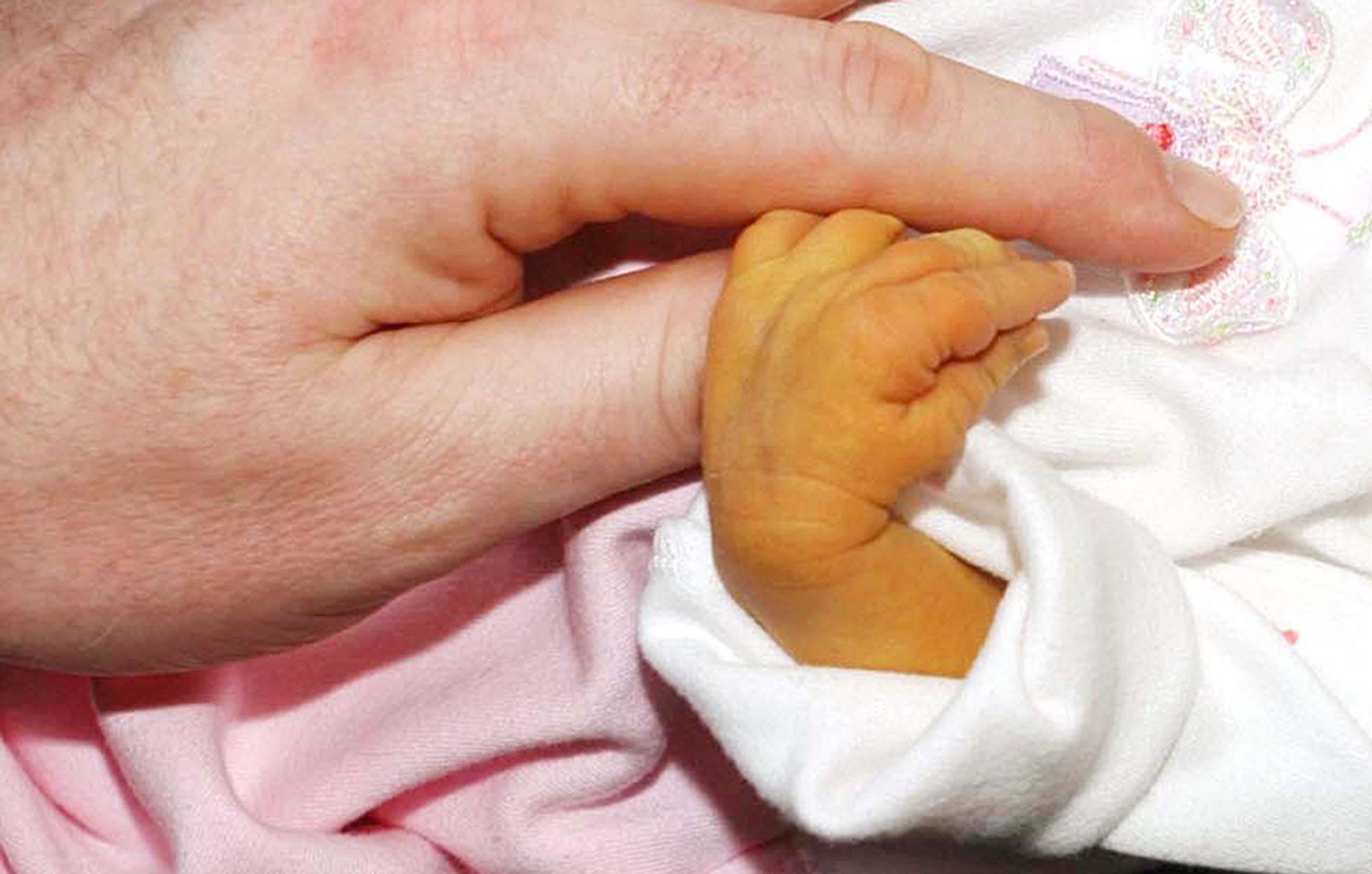New smartphone app identifying jaundice from babies’ eyes ‘could save lives’
The app could help identify severe cases in low and middle-income countries to prevent complications.

Your support helps us to tell the story
From reproductive rights to climate change to Big Tech, The Independent is on the ground when the story is developing. Whether it's investigating the financials of Elon Musk's pro-Trump PAC or producing our latest documentary, 'The A Word', which shines a light on the American women fighting for reproductive rights, we know how important it is to parse out the facts from the messaging.
At such a critical moment in US history, we need reporters on the ground. Your donation allows us to keep sending journalists to speak to both sides of the story.
The Independent is trusted by Americans across the entire political spectrum. And unlike many other quality news outlets, we choose not to lock Americans out of our reporting and analysis with paywalls. We believe quality journalism should be available to everyone, paid for by those who can afford it.
Your support makes all the difference.A smartphone app that can identify severe jaundice in newborn babies by scanning their eyes could help save lives in poorer parts of the world, a new study suggests.
In the study – co-authored by researchers at University College London (UCL) and the University of Ghana – an app called neoSCB was used to scan the eyes of more than 300 newborns in Ghana, following an initial pilot study on 37 newborns in 2020.
The app, developed by UCL clinicians and engineers, was used to analyse images taken on a smartphone to quantify the yellowness in the whites of the newborns’ eyes – a sign of neonatal jaundice.
Analysis by eyesight is unreliable, whereas the app can give an early diagnosis of jaundice requiring treatment.
The study compared the effectiveness of the app with conventional screening methods and found that out of 336 babies tested, it correctly identified 74 of 76 severely jaundiced newborns.
We hope that, once rolled out widely, our technology can be used to save the lives of newborns in parts of the world that lack access to expensive screening devices
The study found that this was in line with the accuracy of the most common screening method, a non-invasive device known as a transcutaneous bilirubinometer, which identified all 76 babies with jaundice correctly.
Dr Terence Leung, from UCL, who developed the technology behind the app, said the study showed the app is as good as the commercial devices currently recommended.
He said the “app only requires a smartphone, which costs less than a tenth of the commercial device”.
Mothers easily devised ways to keep the baby’s eye open, most often by initiating breastfeeding
“We hope that, once rolled out widely, our technology can be used to save the lives of newborns in parts of the world that lack access to expensive screening devices,” he said.
Study lead Dr Christabel Enweronu-Laryea, from the University of Ghana, said the app method was “acceptable” to mothers in the urban and rural areas taking part in the study.
“Mothers easily devised ways to keep the baby’s eye open, most often by initiating breastfeeding,” she said.
While jaundice is common and usually harmless in newborns, in severe cases, bilirubin, the substance causing a yellow skin tone, can enter the brain and lead to death or disabilities such as hearing loss, developmental delays and neurological conditions.
Severe jaundice causes around 114,000 newborn deaths every year and 178,000 cases of disability worldwide – despite being a treatable condition.
Most cases occur in the first week after birth.
- Their skin will look slightly yellow, which is harder to spot in babies with brown and black skin
- Yellowing may be more obvious in the whites of their eyes, inside their mouth, on the soles of their feet, and on the palms of their hands
- It is usually more noticeable on the head and face, and may increase when you press an area of skin down with your finger
- Other symptoms include sleepiness, decreased appetite, dark yellow urine, or pale poo
In higher-income countries, routine screening for early diagnosis lowers the risks of severe complications.
Newborns in low and middle-income countries are usually at greater risk of severe jaundice because the countries lack the resources required for screening.
A commercial transcutaneous bilirubinometer typically costs around £4,000 per device and the blood tests required after the screening require more health workers.
The higher rate of home births and early postnatal discharge can also contribute to fewer newborns being screened in poorer countries.
Babies in sub-Saharan Africa are also at a greater risk because of a high prevalence of glucose-6-phosphate dehydrogenase (G6PD) deficiency, an inherited genetic disorder associated with an increased risk of haemolysis – where red blood cells break down at a faster rate than they are made – and hyperbilirubinemia.
Senior author Dr Judith Meek, at University College London Hospitals, said the app “has the potential to prevent death and disability worldwide in many different settings”.